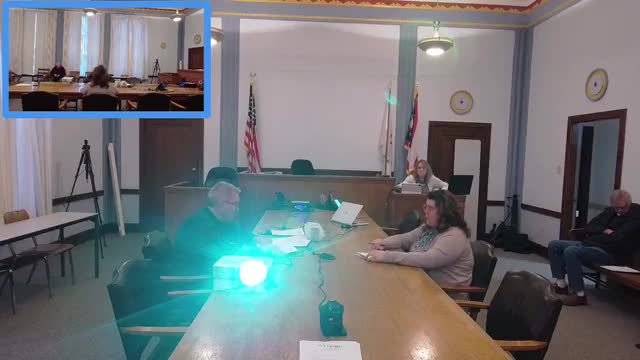Committee debates Uptown design review, Main Street engagement and possible revolving fund for building repairs
Get AI-powered insights, summaries, and transcripts
Subscribe
Summary
Galion's economic development committee spent the bulk of its April 15 meeting on Uptown design review, grants history and proposals to better coordinate Main Street initiatives, increase transparency, and consider a revolving loan fund to help property owners address critical building repairs.
The Galion economic development committee devoted much of its April 15 meeting to an extended discussion of Uptown design review, past grant-funded revitalization and ideas to re-energize downtown economic development.
A committee member framed the discussion as a fact-finding effort, saying the city has received roughly $21 million in grant awards since 1995 for Uptown projects and that design review has processed nearly 800 applications with fewer than seven declines. The member urged greater transparency about where past grant dollars went and stronger integration between the design review board, Main Street and property owners.
Committee members and the mayor discussed gaps the committee found while researching local examples in nearby communities (Ashland, Shelby, Mansfield, Marion and others) where design review or historic-register listings helped secure outside funding. The mayor and other members noted that design review operates under a city codified ordinance (referred to in the meeting as codified ordinance 13.11) and that the board is largely volunteer-run with a small stipend to its secretary; the group prefers independence and provides advisory reviews rather than direct city control.
Concerns raised included an inaccessible or broken link to the city's ordinance on the municipal website, no easily found public list of current design-review members or credentials, and limited city-funded continuing education or formal training for volunteers. Members said these transparency and integration gaps lead to frustration among property owners and create negative narratives in public discussions.
Several committee members pushed for near-term actions: invite Main Street representatives and the design review board to committee meetings (the presenter suggested bringing Main Street to the committee by June), compile a public facing list of past grant awards and beneficiaries, and discuss creation of a local revolving loan or gap-closing fund to help property owners make critical repairs (examples discussed included tuckpointing estimates and window replacement costs).
The committee also discussed the concept of DORA (a special improvement/downtown area funding approach), property-maintenance enforcement, and the county chamber's declining role in uptown business organization. No formal votes were taken; the item was presented as informational and to set the committee's work plan for the coming months.
Direct quote from the committee chair: "I want everybody to understand from a city standpoint how many buildings are potentially affected and who could really use some of this money and have a more impactful effort." Mayor (present): "If the process is wrong, let's fix the process."
